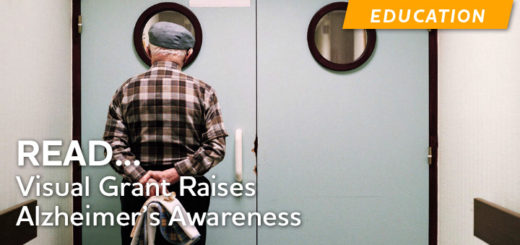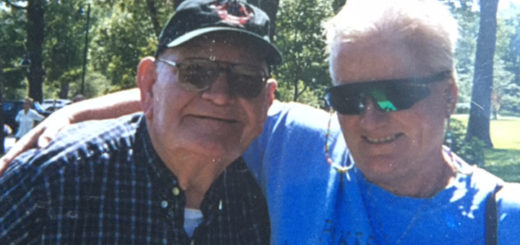Alzheimer’s Basics: All About Wandering
 Wandering and getting lost is common among people with dementia and it can happen during any stage of the disease. A person with Alzheimer’s who wanders may not remember his or her name or address, and can become disoriented, even in familiar places.
Wandering and getting lost is common among people with dementia and it can happen during any stage of the disease. A person with Alzheimer’s who wanders may not remember his or her name or address, and can become disoriented, even in familiar places.
What causes wandering?
We know that six in 10 people with dementia will wander – but why does this happen? Confusion and sometimes fear are behind many incidents of wandering.
Perhaps the individual thinks it’s time to go to work, or might not be sure about why they are in one location when they feel they should be in another. Sometimes wandering takes place because of an urgent need to find someone or something – a family member or their car, for example. In some cases, surroundings might be overwhelming (such as a loud restaurant or shopping mall) or so unfamiliar that the individual feels the need to get away to a place that feels safe and familiar. Often, a person who wanders may have just tried to step away to use the restroom or get a drink of water – and they forget or become confused by their surroundings.
Who is at risk of wandering?
Anyone who has memory problems and is able to walk and/or drive is at risk for wandering. Even in the early stages of dementia, a person can become disoriented or confused for a period of time. Be on the lookout for the following warning signs:
- Returning from a regular walk or drive later than usual
- Trying to fulfill former obligations, such as going to work
- Trying or wanting to “go home,” even when at home
- Restlessness, pacing or repetitive movements
- Difficulty locating familiar places like the bathroom, bedroom or dining room
- Asking the whereabouts of current or past friends and family
- Acting as if doing a hobby or chore, but nothing gets done (e.g., moves around pots and dirt without actually planting anything)
- Appearing lost in a new or changed environment
How can I reduce the likelihood of wandering?
Wandering can happen, even if you are the most diligent of caregivers. Use the following strategies to help lower the chances of a wandering incident:
- Create a daily routine to provide structure.
- Identify the most likely times of day that wandering may occur and plan activities during that time.
- Reassure the person if he or she feels lost, abandoned or disoriented.
- Ensure all basic needs, such as food, water and toileting are met.
- Avoid busy places that are confusing and can cause disorientation.
- Place locks out of the line of sight by installing them either high or low on exterior doors and consider placing slide bolts at the top or bottom.
- Camouflage doors and door knobs by painting them the same color as the walls, or cover them with removable curtains or screens.
- Use childproof knobs.
- Use devices that signal when a door or window is opened, such as a bell or home alarm system.
- Provide supervision at home, in the car and out in the community.
- Keep car keys out of sight.
- If night wandering is a problem, restrict the person’s fluids two hours before bedtime and make sure they have gone to the bathroom just before bed. Also, use night lights throughout the home.
What’s the best way to be prepared?
The stress experienced by families and caregivers when a person with dementia wanders and becomes lost is significant. Have a plan in place beforehand, so you know what to do in case of an emergency:
- Keep a list of people to call on for help.
- Have telephone numbers easily accessible.
- Ask neighbors, friends and family to call if they see the person alone.
- Keep a recent, close-up photo and updated medical information on hand to give to police.
- Know your neighborhood.
- Pinpoint dangerous areas near the home, such as bodies of water, open stairwells, dense foliage, tunnels, bus stops and roads with heavy traffic.
- Know if the individual is right or left-handed? Wandering generally follows the direction of the dominant hand.
- Keep a list of places where the person may wander, including past jobs, former homes, places of worship or a restaurant.
- Provide the person with ID jewelry.
- What should I do if my loved one wanders?
If the person does wander, begin search-and-rescue efforts immediately. Ninety-four percent of people who wander are found within 1.5 miles of where they disappeared. Search the immediate area for no more than 15 minutes.
Call “911” and report to the police that a person with Alzheimer’s disease “” a “vulnerable adult” “” is missing. A Missing Report should be filed and the police will begin to search for the individual.
Learn more about wandering on our web site www.alz.org/safety or by calling us any time, day or night at 800.272.3900.
Helpful information related to this story

















